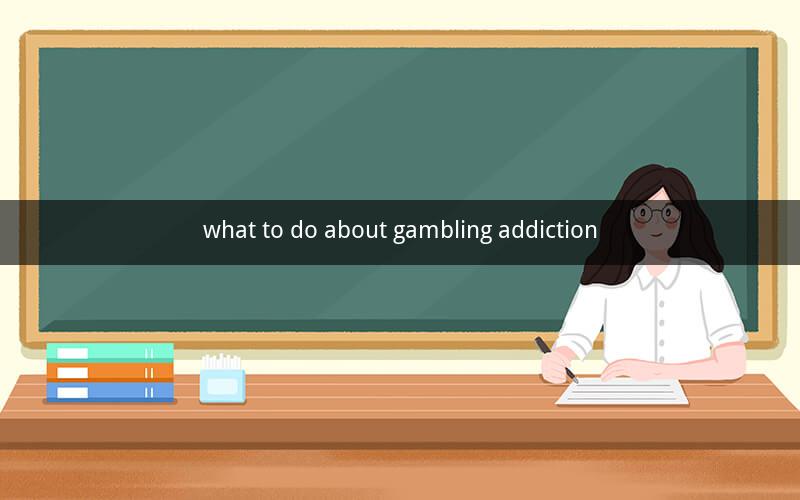
What to Do About Gambling Addiction
Table of Contents
1. Understanding Gambling Addiction
2. Identifying the Signs and Symptoms
3. The Impact of Gambling Addiction
4. Strategies for Preventing Gambling Addiction
5. Seeking Professional Help
6. Support Groups and Community Resources
7. Self-help Techniques
8. Treating Co-occurring Disorders
9. Legal and Financial Consequences
10. Long-term Recovery and Relapse Prevention
1. Understanding Gambling Addiction
Gambling addiction, also known as problem gambling or compulsive gambling, is a behavioral disorder characterized by an uncontrollable urge to gamble despite the negative consequences. It is important to understand that gambling addiction is a legitimate mental health condition, not a personal weakness.
2. Identifying the Signs and Symptoms
Identifying the signs and symptoms of gambling addiction can help individuals seek help early. Some common signs include:
- Inability to control gambling behavior
- Feeling restless or irritable when not gambling
- Continual attempts to stop gambling but unsuccessful
- Lying to friends and family about gambling activities
- Increasing the amount of money and time spent on gambling
- Neglecting personal, work, and family responsibilities
- Using gambling as a means to escape problems or negative emotions
3. The Impact of Gambling Addiction
Gambling addiction can have a severe impact on an individual's life, affecting various aspects, including:
- Financial stability
- Relationships and social interactions
- Mental and physical health
- Legal problems
- Work performance
4. Strategies for Preventing Gambling Addiction
To prevent gambling addiction, consider the following strategies:
- Limit exposure to gambling opportunities
- Set a budget for gambling activities
- Avoid high-risk gambling environments
- Practice self-control and self-discipline
- Seek support from friends and family
5. Seeking Professional Help
If you or someone you know is struggling with gambling addiction, seeking professional help is crucial. Therapists, psychologists, and counselors specialize in treating gambling addiction and can provide personalized treatment plans.
6. Support Groups and Community Resources
Support groups, such as Gamblers Anonymous, can offer a sense of community and understanding for individuals struggling with gambling addiction. Additionally, local organizations and community resources may provide workshops, counseling, and educational programs.
7. Self-help Techniques
Self-help techniques can complement professional treatment and support groups. Some effective strategies include:
- Setting goals and maintaining a gambling-free lifestyle
- Keeping a journal to track thoughts, emotions, and gambling behaviors
- Engaging in alternative activities to cope with negative emotions
- Learning relaxation techniques to reduce stress and anxiety
8. Treating Co-occurring Disorders
Gambling addiction often co-occurs with other mental health conditions, such as depression, anxiety, or substance abuse. It is essential to address these co-occurring disorders to ensure effective treatment and recovery.
9. Legal and Financial Consequences
Gambling addiction can lead to significant legal and financial consequences. Individuals may face legal action for embezzlement, fraud, or theft. It is crucial to seek professional help to address these issues and take steps to regain financial stability.
10. Long-term Recovery and Relapse Prevention
Long-term recovery from gambling addiction requires ongoing commitment and dedication. To prevent relapse, consider the following:
- Continuing therapy or counseling
- Participating in support groups
- Building a strong support network
- Developing healthy coping mechanisms
- Remaining vigilant for warning signs of relapse
FAQs and Answers
1. What is the most effective treatment for gambling addiction?
- The most effective treatment for gambling addiction often involves a combination of therapy, support groups, and self-help techniques.
2. Can gambling addiction be cured?
- While gambling addiction is a chronic condition, it can be managed and controlled with proper treatment and support.
3. Is there a genetic component to gambling addiction?
- Yes, research suggests that there may be a genetic predisposition to gambling addiction, but environmental factors also play a significant role.
4. Can someone overcome gambling addiction on their own?
- While it is possible for some individuals to overcome gambling addiction on their own, seeking professional help and support groups can greatly increase the chances of successful recovery.
5. How long does it take to recover from gambling addiction?
- Recovery from gambling addiction varies from person to person, but it typically requires time, effort, and dedication.
6. What are the warning signs of relapse?
- Warning signs of relapse may include increased stress, isolation, and the urge to gamble despite negative consequences.
7. Can family members support a loved one with gambling addiction?
- Yes, family members can play a crucial role in supporting a loved one with gambling addiction by providing love, understanding, and encouragement.
8. How can I help a friend who is struggling with gambling addiction?
- Offer support without judgment, encourage them to seek professional help, and be there for them during their recovery journey.
9. Can medication help treat gambling addiction?
- Medication is not a primary treatment for gambling addiction, but it may be prescribed in certain cases to address co-occurring mental health conditions.
10. Is there a support group near me for gambling addiction?
- You can find support groups by searching online or contacting local mental health organizations.